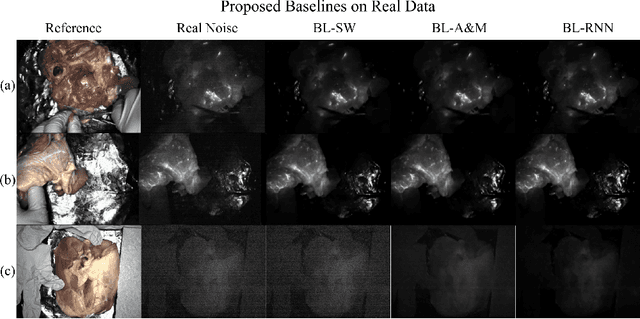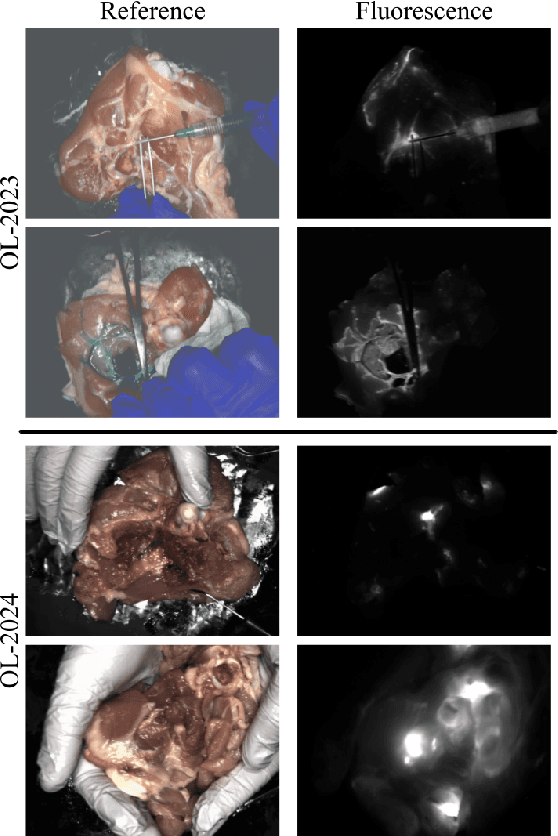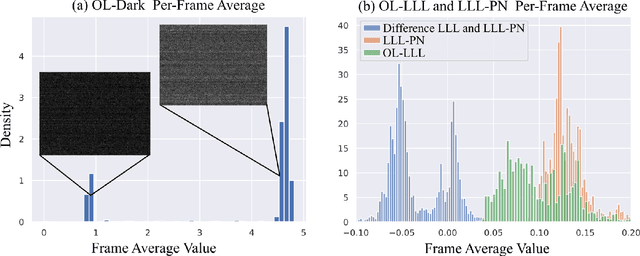Video Denoising in Fluorescence Guided Surgery
Paper and Code
Nov 14, 2024



Fluorescence guided surgery (FGS) is a promising surgical technique that gives surgeons a unique view of tissue that is used to guide their practice by delineating tissue types and diseased areas. As new fluorescent contrast agents are developed that have low fluorescent photon yields, it becomes increasingly important to develop computational models to allow FGS systems to maintain good video quality in real time environments. To further complicate this task, FGS has a difficult bias noise term from laser leakage light (LLL) that represents unfiltered excitation light that can be on the order of the fluorescent signal. Most conventional video denoising methods focus on zero mean noise, and non-causal processing, both of which are violated in FGS. Luckily in FGS, often a co-located reference video is also captured which we use to simulate the LLL and assist in the denoising processes. In this work, we propose an accurate noise simulation pipeline that includes LLL and propose three baseline deep learning based algorithms for FGS video denoising.
 Add to Chrome
Add to Chrome Add to Firefox
Add to Firefox Add to Edge
Add to Edge